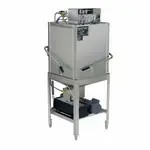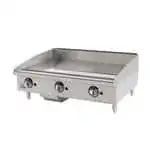
Mastering the Art of Running a Hotel Kitchen
Running a hotel kitchen involves intricate planning, precise execution, and continuous adaptation. This detailed guide explores various aspects of managing a hotel kitchen, from initial installation to daily operations, offering insights into effective kitchen management, the role of kitchenettes, and tips for cooking in hotels without a full kitchen setup. The goal is to provide a comprehensive understanding of how to achieve a seamless kitchen operation that consistently delivers high-quality food and service.
Hotel Kitchen Installation
The installation of a hotel kitchen is a foundational step that sets the stage for efficient operations. A well-planned kitchen installation considers several critical factors, ensuring that the space is optimized for maximum productivity.
Design and Layout
The design and layout of a hotel kitchen must prioritize workflow efficiency. This includes strategic placement of cooking stations, preparation areas, storage spaces, and cleaning zones to minimize unnecessary movement and streamline operations. Ergonomic design is essential to reduce worker fatigue and enhance productivity. Additionally, the layout should be flexible enough to adapt to changing needs and demands.
Equipment Selection
Selecting the right equipment is crucial for the smooth functioning of a hotel kitchen. High-quality, durable appliances that can handle large volumes of food preparation are necessary. Key equipment includes commercial-grade ovens, stovetops, refrigerators, freezers, and dishwashers. Investing in energy-efficient appliances can also help reduce operating costs over time. Moreover, choosing multifunctional equipment can save space and improve efficiency.
Safety and Compliance
Ensuring that the kitchen meets all safety and health regulations is paramount. Proper ventilation systems, fire suppression mechanisms, and safe storage for hazardous materials are critical components. Regular safety audits and staff training on emergency procedures help maintain a safe working environment. Compliance with local health codes and regulations is also essential to avoid legal issues and maintain a good reputation.
Importance of Commercial Kitchen Equipment
Commercial kitchen equipment is the backbone of any hotel kitchen, ensuring that high volumes of food can be prepared efficiently and to a high standard. Essential units include commercial ovens, stovetops, deep fryers, grills, walk-in refrigerators and freezers, dishwashers, and food processors. These units are designed for heavy-duty use, providing the reliability and performance needed to meet the demands of a busy kitchen environment. Proper maintenance and regular upgrades of this equipment can significantly enhance kitchen productivity and food quality, ensuring consistent service excellence.
How to Run a Kitchen in a Hotel

Operating a hotel kitchen involves managing multiple facets to deliver exceptional service consistently. Here are some strategies for running a successful hotel kitchen:
Staff Management
A well-trained, cohesive team is the backbone of any successful kitchen. Hiring experienced chefs and kitchen staff, providing ongoing training, and fostering a collaborative work environment are essential. Clear communication and defined roles help ensure smooth operations, especially during peak service times. Regular team meetings and feedback sessions can also help in identifying and resolving issues promptly.
Inventory Control
Effective inventory management is crucial to avoid food wastage and ensure that all necessary ingredients are available. Implementing an inventory tracking system helps monitor stock levels, track usage patterns, and automate reordering processes. Regular inventory audits and maintaining good relationships with suppliers can further enhance efficiency. Efficient inventory management can also help in controlling costs and improving profitability.
Menu Planning
Creating a well-balanced, appealing menu that can be executed efficiently is an art. Consider seasonal ingredients, local specialties, and guest preferences when planning menus. Regularly updating the menu keeps it fresh and exciting for repeat guests while ensuring that the kitchen can handle the preparation workload. Menu planning should also consider dietary restrictions and food allergies to cater to a diverse clientele.
Technology Integration
Leveraging technology can streamline kitchen operations significantly. Point-of-sale (POS) systems, kitchen display systems (KDS), and automated inventory management tools can enhance order accuracy, reduce wait times, and optimize kitchen workflows. Investing in these technologies can lead to long-term operational efficiencies and improved guest satisfaction. Technology can also provide valuable data insights for better decision-making.
Hotel Kitchens: The Heart of Hospitality
Hotel kitchens differ from regular restaurant kitchens in several ways. They often need to cater to various dining outlets within the hotel, such as restaurants, room service, banquets, and poolside bars. This requires a high degree of flexibility and the ability to manage multiple menus and service styles simultaneously.
Centralized vs. Decentralized Kitchens
Hotels may operate centralized kitchens that serve all dining outlets or decentralized kitchens with separate facilities for each outlet. Centralized kitchens offer economies of scale and streamlined operations, while decentralized kitchens allow for more specialized and focused service for each outlet. The choice between centralized and decentralized kitchens depends on the hotel's size, layout, and specific needs.
Room Service and Banquets
Room service and banquet operations add another layer of complexity to hotel kitchens. Efficient coordination, timely delivery, and maintaining the quality of food are essential. Banquets require meticulous planning, with menus tailored to the event type and guest preferences. Coordinating these large-scale events requires teamwork and precise timing to ensure that food is served at the right temperature and quality. Attention to detail and excellent communication are key to the success of these operations.
Kitchen Management
Effective kitchen management ensures that operations run smoothly and efficiently. This includes scheduling shifts to ensure adequate staffing during busy periods and slower times. Managers should monitor kitchen performance, address any issues promptly, and continuously seek ways to improve processes. Utilizing performance metrics and guest feedback can help in identifying areas for improvement.
Quality Control
Maintaining high standards of food quality and presentation is crucial in hotel kitchens. Regular taste tests, visual checks, and consistency in recipes help ensure that every dish meets the hotel's standards. Guest feedback should be actively sought and used to make improvements where necessary. Implementing a robust quality control system can enhance guest satisfaction and foster repeat business.
What is a Kitchenette in a Hotel?

A kitchenette is a small, self-contained cooking area typically found in hotel rooms, especially those designed for long-term stays. It usually includes basic appliances such as a microwave, a small refrigerator, a sink, and minimal cooking utensils. Kitchenettes allow guests to prepare simple meals, offering them greater flexibility and comfort during their stay.
Benefits of Kitchenettes
Kitchenettes provide numerous benefits for both hotels and guests. For hotels, offering kitchenettes can attract long-term guests and those who prefer the convenience of cooking their meals. For guests, kitchenettes offer the flexibility to prepare meals at their convenience, save on dining costs, and accommodate dietary restrictions or preferences. They also add a home-like feel to the stay, enhancing overall guest satisfaction.
Designing a Kitchenette
When designing kitchenettes, hotels should ensure they are user-friendly and well-equipped with essential items. Space-saving solutions, such as multi-functional appliances and clever storage, can make even the smallest kitchenette functional and efficient. Clear instructions and guidelines for using the appliances can enhance the guest experience. Including a variety of utensils and basic cooking supplies can also improve guest convenience.
How to Cook in a Hotel Without a Kitchen
Cooking in a hotel room without a kitchen can be challenging but not impossible. Here are some tips to make the most of limited resources:
Use Portable Appliances
Portable appliances like electric kettles, toaster ovens, and slow cookers can be lifesavers. These appliances are compact, easy to use, and can prepare a variety of meals. Ensure that the hotel allows the use of such appliances in guest rooms for safety reasons. It's also advisable to check the power requirements to avoid overloading the electrical system.
Plan Simple Meals
Opt for simple, no-cook, or minimal-cook meals that require few ingredients and utensils. Salads, sandwiches, and microwave-friendly dishes are excellent options. Pre-packaged meals that only require heating can also be convenient. Planning meals in advance and bringing necessary ingredients can save time and hassle.
Make Use of Hotel Amenities
Utilize hotel amenities such as coffee makers and mini-fridges to store and prepare food. Many hotels also have communal kitchens or barbecue areas that guests can use. Checking with the hotel staff about available resources can provide additional options for meal preparation. These amenities can significantly expand the range of meals that can be prepared.
How to Run a Kitchen in a Restaurant

While hotel kitchens and restaurant kitchens share many similarities, there are distinct differences in their operations. Here are some tips specifically for running a restaurant kitchen:
Streamlined Operations
Restaurant kitchens typically have a more streamlined focus, with menus that are less varied but more specialized. This allows for more precise and efficient preparation of dishes. Standardizing recipes and procedures ensures consistency and quality. Streamlining operations can also reduce preparation time and improve service speed.
Inventory and Cost Control
In a restaurant kitchen, managing inventory and controlling costs are crucial. Regular inventory checks, accurate portion control, and reducing food waste are essential practices. Building strong relationships with suppliers can help secure better prices and consistent quality. Effective cost control measures can improve profitability and sustainability.
Customer Experience
The customer experience in a restaurant is more immediate and personal compared to a hotel. Engaging with guests, receiving feedback, and making adjustments based on their preferences can enhance their dining experience and build loyalty. Personalized service and attention to detail can make a significant difference in guest satisfaction.
Staff Training and Development
Investing in staff training and development is key to a successful restaurant kitchen. Ongoing training programs, opportunities for career advancement, and creating a positive work environment can help retain talented chefs and kitchen staff. Regular training sessions can also keep the team updated on new techniques and trends.
Conclusion
Running a hotel kitchen is a complex yet rewarding endeavor that requires careful planning, efficient management, and a commitment to quality. From the initial installation of the kitchen to the daily operations, every aspect must be meticulously managed to ensure guest satisfaction and operational success. Understanding the nuances of different kitchen setups, whether it's a full-scale hotel kitchen, a kitchenette, or a restaurant kitchen, allows for tailored strategies that meet the unique demands of each environment.




